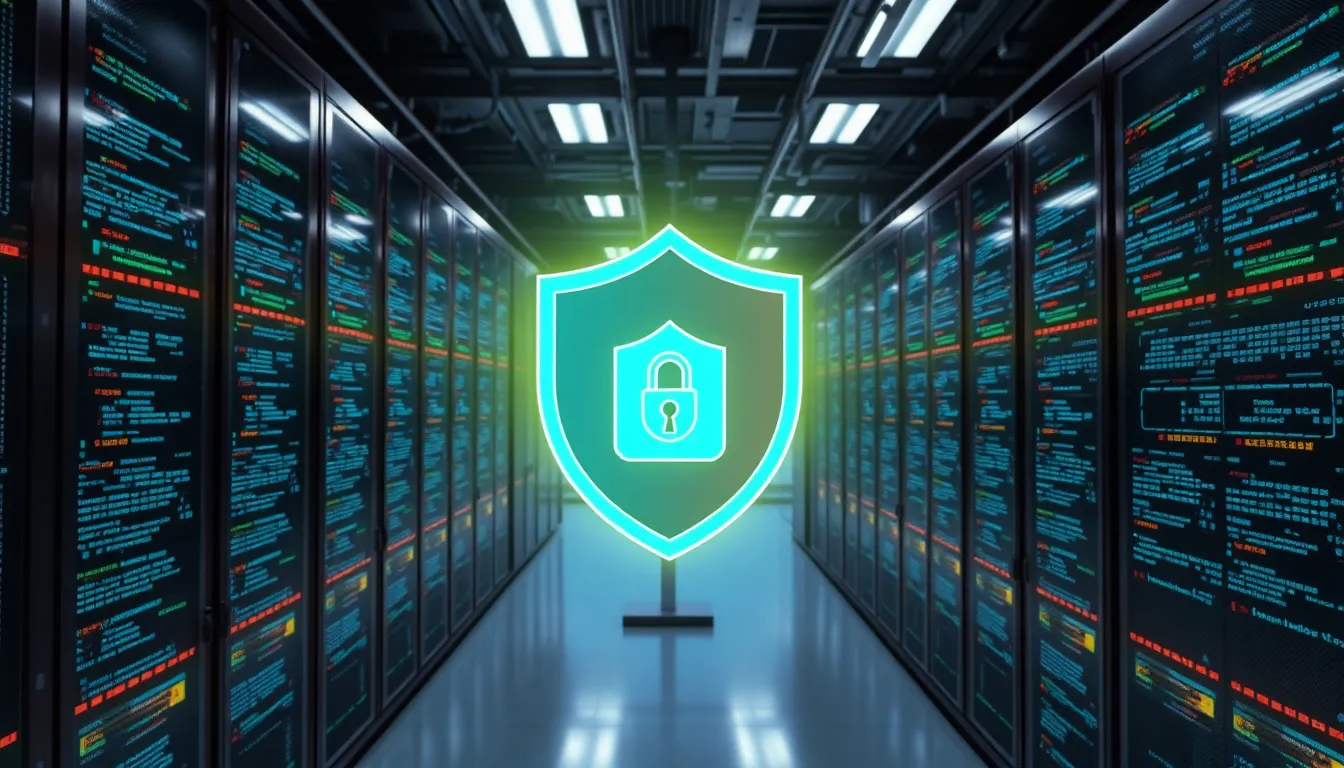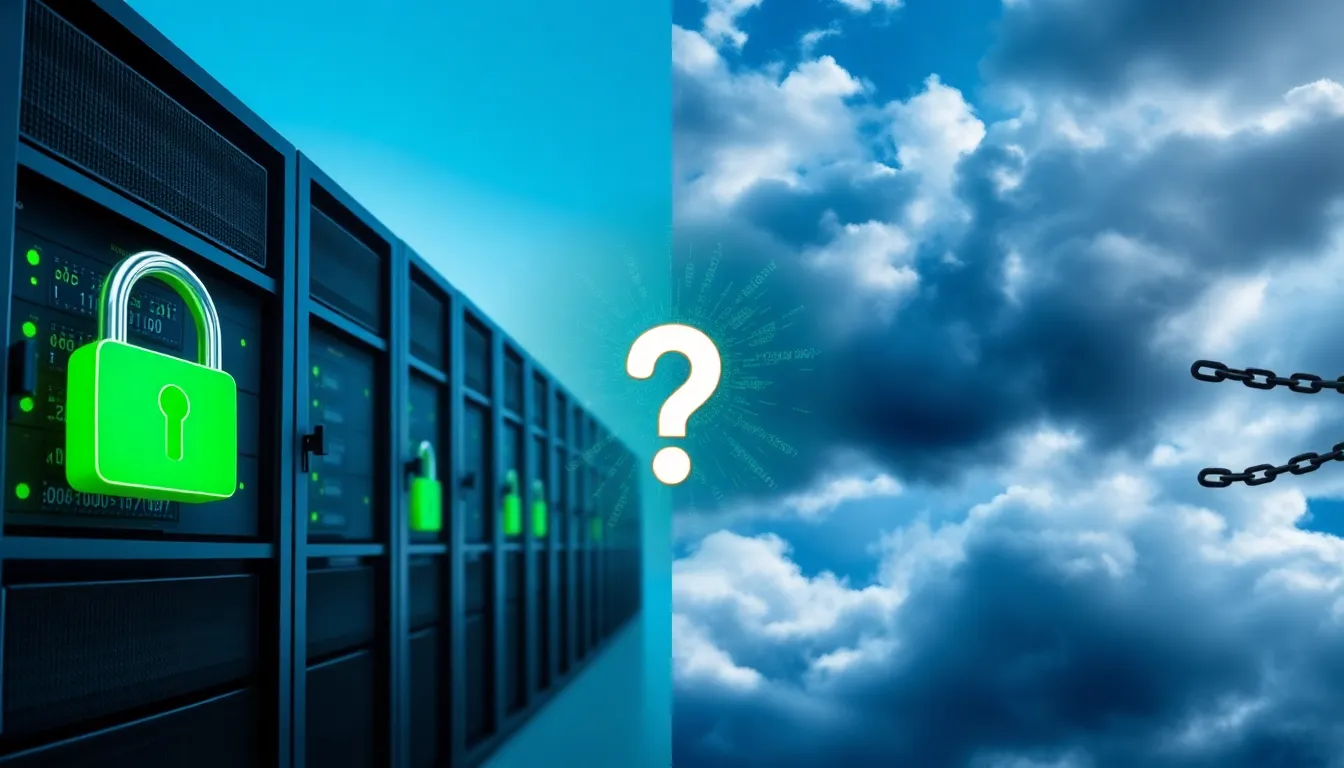German web hosting providers set standards in data protection and security measures throughout Europe. Numerous legal requirements and modern technical solutions make Webhosting Germany is the first choice for many companies when it comes to security and availability.
Key points
- DSGVO-Compliance as the legal basis for data protection
- Data centers with physical security within Germany
- Technical protective measures such as firewalls, SSL and IDS
- Availability and data integrity through backups and emergency plans
- Location advantages through national legislation and infrastructure

Data protection: strictly regulated and transparent
In Germany, hosting providers are legally obliged to process personal data with great care. The General Data Protection Regulation (GDPR) forms the legal framework for this. It clearly defines when and how data may be stored, processed and passed on.
The GDPR requires all hosting providers to establish measures such as data encryption, access restrictions and audit-proof logging. This significantly increases customer protection - for example, against data leaks or unauthorized disclosure. Violations quickly lead to fines in the millions, which increases the pressure to consistently implement security standards.
German web hosting is therefore an excellent option, especially for companies based in the EU: it ensures compliance and reduces legal uncertainties when handling sensitive customer information.
Physical security of the data centers
In Germany, data security starts with the location. Data centers here are subject to particularly stringent regulations that go far beyond international minimum requirements. Operators rely on multi-level access controls, fire protection systems and a power supply that is independent of the energy supplier. These measures ensure maximum operational security.
The location also plays a role: many data centers are built in geologically safe regions. They also have redundant systems so that they can continue to operate in the event of a power failure, for example. This structure drastically reduces the risk of outages and increases the reliability of services.
In addition, data remains within national legal boundaries thanks to storage in German centers. This avoids the impact of international surveillance measures such as the CLOUD Act, which is particularly relevant for data-sensitive sectors such as medical technology or law.

Sustainability and energy efficiency in German data centers
Another point that many companies are taking into account these days is environmental sustainability. German data centers are increasingly focusing on covering their energy requirements from green sources and keeping their carbon footprint as low as possible. Modern cooling concepts such as free cooling, which uses cold outside air, reduce electricity costs and protect the environment at the same time. In this way, many operators combine high safety standards with responsible use of natural resources.
For customers, this means that those who choose a provider with a sustainable concept not only benefit from advanced security systems, but also contribute to lower energy consumption. In view of rising electricity prices and growing awareness of environmental issues, this aspect is becoming increasingly important when choosing a suitable hosting partner. German providers combine security, performance and ecological responsibility into a holistic service.
Technical safety measures
Modern web hosting solutions in Germany rely on more than just minimum legal requirements. Integrate providers Security software such as firewalls, intrusion detection systems and real-time monitoring. These actively protect against attacks, such as DDoS attacks or malware.
SSL/TLS encryption is also offered as standard. This secures communication between visitors and the server. Equally important are regular backups, which make it easy to restore data in the event of an emergency.
Progressive providers such as Hetzner also offer optional protection through web application firewalls or malware scanners. This allows threats to be identified and isolated at an early stage.
Managed vs. unmanaged hosting: decision factors
When it comes to security, the question of how much responsibility the customer wants to take on themselves also plays a role. managed hosting means that the provider takes on many tasks - especially in terms of security updates and monitoring. For companies that do not have their own IT department or whose staff are working on other projects, this is often the simpler and more secure solution. Specialized support is particularly important in highly sensitive areas such as e-commerce or healthcare.
At Unmanaged hosting the customer is responsible for the configuration and maintenance of their server. This provides more flexibility, but requires extensive specialist knowledge. When it comes to security in particular, administrators often have to think about updates themselves, configure firewalls manually and check logs on an ongoing basis. Those with the necessary expertise can act more independently, but should be aware of the risk of security-related tasks getting lost in day-to-day operations.
Comparison of German providers: Who offers what?
Anyone looking for a reputable web hosting service provider should compare security features as well as price and storage space. The following table provides examples of some German providers that are characterized by high security standards and reliable infrastructure.
| Provider | Data center location | Security certificates | Daily backups | GDPR-compliant |
|---|---|---|---|---|
| Ionos | Germany | ISO 27001 | Yes | Yes |
| Hetzner | Germany | ISO/IEC 27001 | Optional | Yes |
| webhoster.de | Germany | Own management | Yes | Yes |

Looking for the right web hosting: practical criteria
Before deciding on a provider, it is worth taking a detailed look at your own project. What type of web application is to be operated? How high is the expected traffic volume? And how critical are downtimes? In addition to security issues, these are crucial points in the planning process. A simple shared hosting tariff is often sufficient for small blogs or niche websites. However, if you are planning a sophisticated e-commerce site or need to manage large amounts of data, you are better off with a more comprehensive package.
In many cases, it is also worth contacting support directly to clarify specific questions. Reliable providers provide insight into specific measures, offer service level agreements (SLAs) and can develop customized solutions if required. With this approach, both technical and legal stumbling blocks can be identified and resolved at an early stage.
Real advantages over international offers
German providers score above all with a combination of legal clarity and technical excellence. Unlike many providers in the USA or Asia, German companies are not subject to any regulations that could force them to hand over data to foreign authorities.
Communication with support is also often less complicated. Customers have direct contact with German-speaking staff - helpful for security-related issues. In addition, contractual relationships can often be Legally clear binding regulations, which is rarely the case with international providers.
Backups, attack defense and emergency plans
No one can completely rule out an IT failure. That's why a hosting plan should always include emergency mechanisms. The best German providers automatically back up data several times a day - on servers in different physical locations. In the event of an emergency, recovery is possible in a short time.
They also have graduated response strategies in the event of an attack. These include IP blocklists, traffic filtering and partnership-based cooperation with security experts. This rapid response prevents attacks such as phishing or ransomware from causing financial damage.

Flexible packages and long-term security strategies
Many German web hosting service providers offer various packages - from entry-level tariffs through to powerful solutions with a scalable IT infrastructure. Data protection always remains part of every service.
When choosing a provider, it is worth paying attention not only to the range of functions, but also to the provider's long-term development plans. Anyone who regularly invests in security updates or carries out penetration tests, for example, shows a sense of responsibility towards their customers.

Long-term prospects and technological developments
Advancing digitalization also regularly poses new challenges for web hosting. Technologies such as containerization (Docker, Kubernetes) and serverless architectures in particular are changing the market, as they offer even greater flexibility in terms of scaling. German providers often respond to this with cloud concepts developed in-house that enable fast and secure connection to modern platforms. At the same time, the topic of data protection remains in focus, as strict GDPR regulations also apply to container solutions.
AI-based security solutions are also becoming increasingly important. For example, intrusion detection systems can use machine learning to recognize patterns in real time that indicate an attack and take proactive countermeasures. This opens up completely new possibilities, especially for companies with higher security requirements. The specialization of German providers in technical excellence and legal security creates a clear competitive advantage in this innovative environment.
Additional advantages due to location in Germany
Not every data center that says "Germany" is actually located within German borders. Pay particular attention to where your provider stores the data. A Comparative overview of German web hosters helps with the selection.
In addition to security, the location often also means faster loading times for customers in German-speaking countries. This can become a competitive advantage for e-commerce projects or data-intensive applications.

Final thoughts
If you value reliable data protection, state-of-the-art security measures and legal transparency, hosting in Germany is a well thought-out decision. The combination of technical protection mechanisms and national legislation creates a secure foundation for any web presence. Even if the price is somewhat higher compared to international providers, the long-term risk minimization and high availability make this investment a sensible one, especially for business-critical applications.



